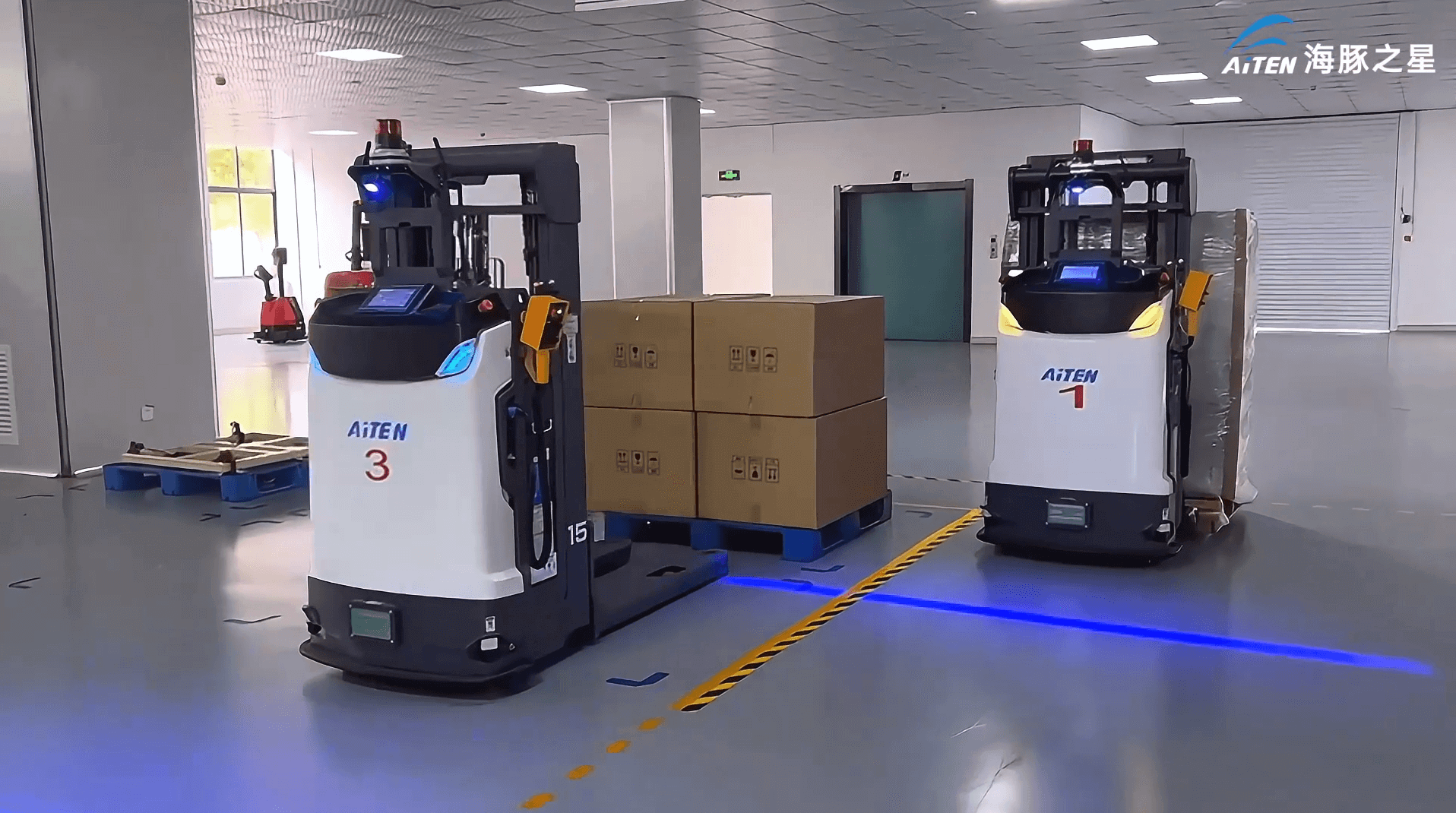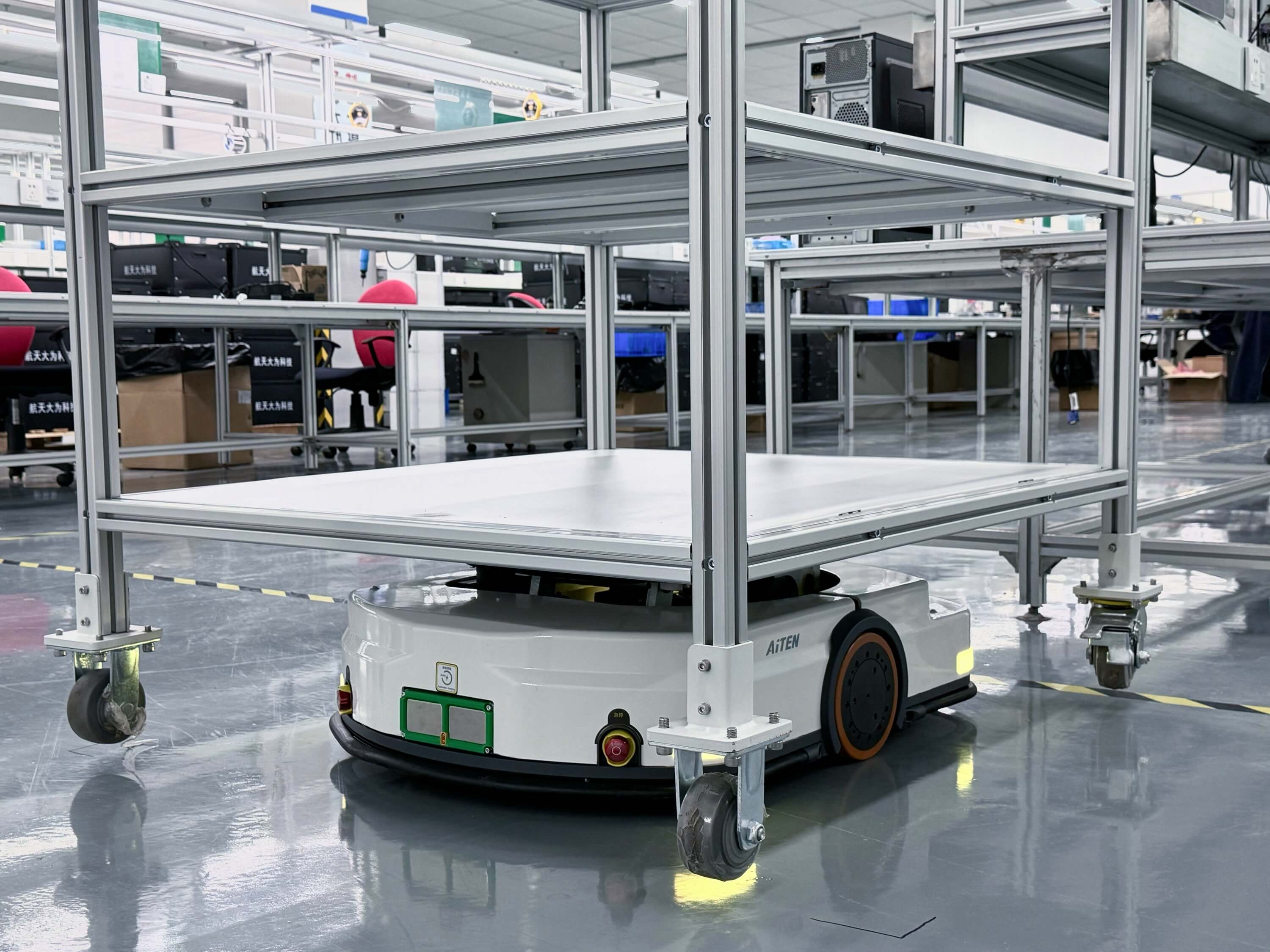How Automated Pallet Trucks Streamline Material Handling

Material handling constitutes a core function within supply chains, warehouses, and manufacturing facilities.
In today's fast-paced logistics and manufacturing environments, efficiency and accuracy are paramount. Confronted with rising labour costs and stringent demands for immediate delivery, an increasing number of enterprises are adopting automated pallet trucks, also known as pallet AGVs (Automated Guided Vehicles), to optimise their material handling processes.
This article will delve into how automated pallet trucks enhance material handling operations, delivering tangible improvements in production efficiency and profitability.
1. What Are Automated Pallet Trucks?
Automated pallet trucks are robotic systems capable of autonomously transporting pallets and goods, enabling the movement of pallets within warehouses or distribution centres with minimal human intervention.
Utilising technologies such as laser navigation (LiDAR), SLAM mapping and intelligent obstacle avoidance, they navigate autonomously and with precision within warehouses, accomplishing a series of transport tasks from the receiving area to storage zones, from shelving to packaging stations.
Typically, they can be integrated with WMS warehouse management systems and MES manufacturing execution systems to enable real-time task dispatch and route optimisation.
These automated systems take various forms depending on organisational requirements. From compact systems suited to narrower passage widths to large industrial versions that accommodate hefty payloads, there is a solution to suit every operation.
2. Key Benefits of Automated Pallet Trucks
a. Improved Efficiency
Investing in automated pallet trucks represents not merely the acquisition of equipment, but a strategic upgrade to operational efficiency, safety, and scalability.
One of the core values of automated pallet trucks in optimising material handling lies in maximising throughput capacity—that is, the rate at which goods are moved, stored, or transported.
Automated pallet trucks can operate 24/7 with consistent precision. They eliminate delays caused by shift changes or human fatigue, ensuring a steady flow of materials.
With intelligent path planning, they reduce travel time and congestion, leading to faster turnover.
Modern automated pallet trucks can integrate with WMS and ERP systems to enable real-time task allocation, dynamic inventory tracking, and synchronised workflow management. This eliminates manual data entry and streamlines order fulfilment processes.
b. Cost Reduction
Although the initial investment is relatively high, automated pallet trucks can rapidly reduce labour costs, minimise downtime and lower product wastage. These funds can be redirected towards other business improvements, such as expanding operations into new regions, investing in new technologies, and developing new or enhanced products.
While implementing automated pallet handling systems to automate warehouses or distribution centres represents an investment, the return on investment proves highly favourable in the long term.
Cost of autonomous forklifts VS labor costs in warehouse operations
c. Enhanced Safety
Safety is the foremost consideration in material handling.
Safety incidents caused by conventional forklifts have long been a persistent challenge within the warehousing sector. The deployment of automated systems, such as pallet handling robots, can mitigate the risk of workplace injuries by eliminating the need for manual labour in physically demanding lifting tasks. With reduced personnel and forklift traffic, accident rates consequently decrease.
Automated pallet trucks equipped with 360-degree perception systems and emergency braking capabilities significantly reduce collision risks, thereby creating safer working environments and minimising cargo damage.

This provides employees with a safer and more reliable working environment.
Are self-driving forklifts safe for warehouse environments?
d. Seamless System Integration
As businesses evolve, material handling requirements will continually change. Automated pallet trucks offer exceptional flexibility, enabling enterprises to effortlessly adapt to operational expansion.
One of the foremost advantages of automated pallet handling systems lies in their scalability. Companies can readily adjust the size of their robotic fleets according to existing infrastructure and overall operational demands.
Should requirements diminish, warehouses may opt to reduce the number of robots deployed for a period.
Automated pallet transport vehicles can communicate seamlessly with ERP, WMS and other robotic systems, enabling full-process coordination and real-time visualisation of material flow.
This integration supports data-driven decision-making and end-to-end automation.
How to integrate AGV forklifts into your warehouse automation system?
3. Typical Applications
Automated pallet trucks are ideal for various logistics and production scenarios:
- Inbound logistics: transporting raw materials from docks to storage areas.
- Production lines: delivering components to assembly stations just in time.
- Outbound logistics: moving finished goods to shipping or palletizing stations.
Successful Application Cases of AiTEN Robotic Pallet Handlers:
In manufacturing, precision and speed are paramount, and pallet trucks can enhance assembly line operations.
For instance, within automotive manufacturing plants, the deployment of pallet trucks reduces production lead times and lowers labour costs. By utilising manual handling equipment, workers can seamlessly transport materials between workstations, thereby boosting production efficiency.
AMK narrow-aisle AGVs power Qianjiang refrigeration’s smart factory transformation
Smart handling robots and autonomous forklifts: transforming logistics in electrical equipment group
.jpg)
Conclusion
Automated pallet trucks are no longer a futuristic concept, but rather a practical tool for enhancing competitiveness in the present day.
Automated pallet trucks represent the future of warehouse automation—where precision, safety, and intelligence converge.
In the era of smart logistics, automation is not just an advantage—it’s the new standard.
Automated pallet trucks represent far more than a mere technological upgrade — they constitute a strategic investment in optimising material handling processes, delivering comprehensive enhancements across four key dimensions: efficiency, cost, safety, and scalability.
If you are seeking to enhance production line and warehouse efficiency, reduce long-term costs, and build a more resilient supply chain, then evaluating and introducing automated pallet trucks will be your next strategic decision.
About AiTEN Robotics
As a company specialising in intelligent logistics solutions, AiTEN Robotics has consistently focused on the ‘smart factory’ scenario, deeply integrating technological innovation with industry needs. It has provided comprehensive services to over 200 manufacturing clients worldwide: Leveraging a full range of material handling robot product portfolios to cover diverse material handling scenarios, we have developed an industry-grade intelligent scheduling system to enable efficient collaboration among multiple devices. Through a comprehensive lifecycle service system spanning pre-sales planning, deployment and implementation to operations optimization, we empower enterprises to achieve logistics intelligence transformation, continuously driving the digital upgrading and high-quality development of the manufacturing industry.
Is your warehouse prepared to embrace this efficiency revolution? Contact us immediately to secure expert consultation on AGV intelligent warehousing solutions!









_%E7%94%BB%E6%9D%BF%201.avif)

